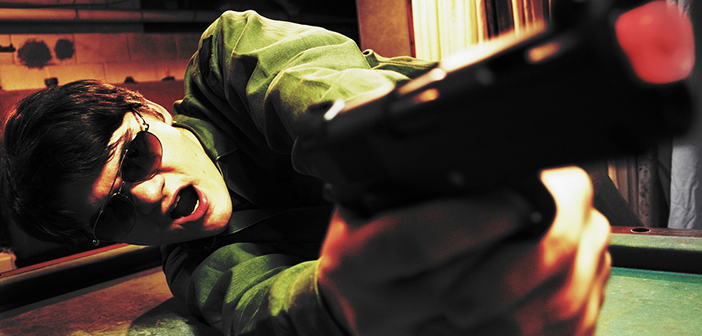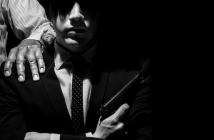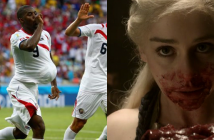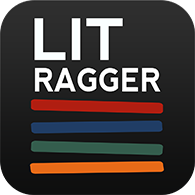Editor’s Note: It’s summer. Read something you can’t put down. This is Part 1 of a two part series about the crime fiction writers you should check out if you’re looking to start your life of crime.
There is a certain stigma to all types of genre fiction, and much of the time it is well deserved. Crime fiction and its many sub-genres don’t have quite the same dubious reputation as, say, sci-fi or fantasy or, saints preserve us and our un-ripped bodices, romance, but it’s been kicked around a fair amount over the years. Again, not altogether unfairly.
There are the criticisms that any genre-oriented fiction produces: lazy and/or awkward prose, stale repeating characters/ongoing series, the false comforts of escapism (either to a world too benign or too hostile) and the general lack of relevance to, and partial to complete disconnection from, the reality we live in. Crime fiction also feels the sting of more pointed barbs: racism, bass-ackwards political philosophy, excessive violence, unnecessarily graphic violence, violence as pornography (literally as well as figuratively), violence as the answer or the best answer or the only answer, a great deficiency of even the loosest sort of morality, and oh Lord so, so much misogyny.
While I don’t claim true authority, I have read quite a lot (perhaps a full clip?) of crime fiction and I will be first to say that there’s plenty of evidence of every shortcoming and misstep mentioned above in the crime world, and many others to boot. There’s a lot of terrible, stupid, silly and downright offensive stuff in this particular literary realm.
But.
Good crime fiction is different. Good crime fiction, at its very least, can offer us a glimpse of a world that actually exists in the darker corners of our own while allowing us the distance to appreciate (hopefully) how alien it feels to us.
My favorites in the genre do a hell of a lot more, though: they show us these dark corners, yes, but then they reveal how small of a difference there really is between them and our own safe territory in the middle, where the light shines down plentiful and where the rain is both rare and welcome on its few appearances because all it does for us straight citizens is help revive the landscape and let the crops grow tall.
As a certain low poet of the Baltimore streets once proclaimed, “there’s a thin line ‘tween Heaven and here.”
Good crime fiction toes this line. Good crime fiction opens our eyes to the possibilities, good and bad, extant on the edges of things. It shows us men and women not all that unlike ourselves forced into terrible circumstances and forces us into understanding, if not always condoning, the terrible things they do for survival, well-deserved vengeance, or even for fun. Yes, fun. It helps satisfy our baser instincts, act out our most repressed desires, slake our deeply-hidden thirsts.
The best stuff in this world is the opposite of escapist, ripping our blinders off and roughly jamming reality in our faces. It does not glorify violence, but acknowledges its existence and occasional use, and shows us the consequences without judgement. Justified or not, a fist or a knife or a bullet (or a tongue) wreaks terrible havoc. It is, actually, especially important if the violence is supposedly justified–we need to know, to see, to understand how it looks, sounds, and feels. We don’t get to ignore the aftermath, cannot be shielded from its malignant glow.
Likewise, good crime fiction does not promote racism or sexism as much as it admits they are real and plays with our notions about them, makes you wonder about other lines, like when you do find yourself hating someone of another color or gender because hate happens between humans, and why and when that descends into something else, something unconscionable, something our parents taught us was wrong (but only if we were lucky).
Speaking of sexual politics, the better class of crime fiction (over the last few decades anyway) dives further into sexual politics, touching on homophobia, trans issues, other alternative sexualities (even that is noteworthy, not too long ago it all would’ve been called deviant but now the better writers know what such a term truly covers and what it doesn’t), and women’s issues less directly related to sex. Greg Rucka’s debut novel Keeper (1996), for instance, concerns a professional bodyguard who is hired by the head of an abortion clinic to protect her and her daughter when she begins receiving death threats…after the bodyguard in question and his girlfriend visit the clinic for her professional services.
The good stuff is simultaneously apolitical and opinionated as hell, observant but not didactic, content (to utilize a creative writing 101 cliché in a more literal sense) in showing you without needing to tell you. It recognizes there are different points of view on any given subject, but more importantly acknowledges the fact that sometimes both sides of an argument can be right.
Money runs through pretty much all crime fiction, good and bad, but the better stuff doesn’t just feature stacks of cold hard cash; it talks about class, socio-economic struggles, boundaries and divides, the great rift between the haves and the have-nots that sometimes, especially these days, is a more powerful and more destructive force than race or any of the other more “traditional” hot-button issues.
Think you don’t like crime fiction? Dostoevsky might have something to say about that. Or Hemingway, Flannery O’Connor, Steinbeck, Dickens, Toni Morrison, fucking Shakespeare and Homer too. No less than Graham Greene, that supreme British stylist and chronicler of the 20th century’s ills and fallacies, split his books into the categories of “novels” (The End of the Affair, The Power and the Glory, etc) and “entertainments” such as The Ministry of Fear and Our Man In Havana, and while I don’t make a habit of disagreeing with geniuses I defy you to differentiate which category is of more “value”.
(Granted, his “entertainments” can be seen more as spy/espionage novels than straight crime, but crime fiction is like rock and roll–it’s less about the content than it is the style, the attitude, the overall perspective, and purists be damned).
Good art in any medium is supposed to hold up a mirror to the world, to humanity, to one’s self. Crime fiction’s mirror is just of the funhouse variety; our reflections come back twisted and distorted, monstrous even, but no less real. Crime fiction can be “literature” and vice-versa. It has power and poignancies and contains good, evil, destruction (self- and otherwise) and occasional redemption. It can also be funny as Hell (literally? Perhaps).
So here are some of the living writers I don’t recommend you read but urge, plead, beg you to read, to absorb, to inhale, to fucking mainline. Good crime fiction is truth, straight up, no chaser, pedal on the floor going full tilt boogie. Anyone who claims they don’t have the stomach (see: guts) for it might as well give up reading altogether, I’m sure you can find something more reassuring, something a little more safe to take to the beach. I say fuck that. Let’s go Down in the Zero and dredge up some bald warts-and-all reality.
Just remember to hang on. This kind of reckless verisimilitude doesn’t come with a trigger warning or NSFW disclaimer. it just hits you hard, fast, and with unerring bullseye accuracy. Whether they’re shooting or swinging (and some do both), these motherfuckers aim for the head.
George Pelecanos
DC born and bred, a sharp dresser with impeccable taste in music who isn’t afraid to get down and dirty. He shows us the DC most people never even heard of let alone know about, and he’d been doing it for years by the time it became cool to watch The Wire–which he helped write and produce. His heroes are ex-cons, lifelong vagabounds, hustlers who sling drugs, shoes and discount electronics with coke-and-amphetamine-fueled panache, alcoholic cops, ex-cops still stuck to the Job, P.I.s with noble hearts and wandering eyes, and vets from all of America’s more recent foreign conflicts just trying to make their worlds make sense, often with disastrous results. He makes you think about crime, violence, pain of all stripes, men and women and black and white, cops and criminals, sex and love and back again, different types of education (usually dependent on where you live and who you are), law and order and right and wrong and the difference between them, even atomic dread in the Nuclear Age in (1996). He talks about addiction, how it hurts but also, sometimes, how it helps, and why you become addicted and to what.
Constantine, one of (1994) two protagonists, lives his life according to The Beat, the rhythm of life itself you don’t hear with your ears, mental music blaring from the deep running subconscious radio station all of humanity is tuned into, and in all George’s work you can hear The Beat yourself. His characters live (mostly) in DC, most of them are criminals, cops, and con men who drink or smoke too much, and nearly all have either way more or (more often) way less money and social standing than you or I.
Like all crime fiction it shuns the Great Middle in every regard, but really the place is Anywhere, Everywhere, and the people are you, me, and us.
Richard Price
Did I already mention The Wire? Price wrote for it, too. But more importantly, he wrote several novels that were basically the catalyst for that show’s entire goddammed existence. Clockers is the holy grail of modern urban fiction, and if you watched the show I’ve already mentioned too many times you’ll surely share a knowing and slightly smug grin with me when I say that the book is truly Dickensian in all the right, best ways.
, Freedomland, and , to name a few of his books, capture perhaps the truest vision of real people living their real lives on the front lines of America’s various (and in some cases undeclared or even unacknowledged) domestic social wars: drugs, race, class, poverty, etc. I call Michael Connelly (who I’ll get to in Part 2) the most purely procedural writer of this bunch, and while I stick to it I have to admit Price’s cops are the realest of any on this list. In fact, he’s way up there for writing the most realistic cops period, save for perhaps Joseph Wambaugh–who was one–and Ed McBain, who devoted the large part of his fifty-year career to writing them.
The thing about Price, though, is all his other characters are equally well-drawn. They have ulcers, they stutter, their feet hurt after a long day. They make mistakes, but not just the cataclysmic blunders leading to jail or death so prevalent in this world–little bullshit slips of the tongue, stumbles over the curb, dialing the wrong number. Wearing a badge, wielding a pen mightier than absolutely nothing at all or sporting gang colors, his people are authentic enough to step off the page and join you for a beer. Sure, inner-city gangs had been written about before, but Price was one of (if not the) first to show them as people and not stock villains, hordes of walking Iceberg Slim parodies, and he certainly does it the best. He stares truth, actual truth, in the face and doesn’t blink. People, and let’s face it most people, are prejudice to varying degrees; Price is interested in how these prejudices manifest themselves, and how they can either be overcome or driven deeper into the heart, where they can consume and destroy.
Price’s secret is admitting how many of these judgements turn out right as well as how many turn out wrong, and why it’s important to recognize and understand both. Sounds a little pretentious maybe, and I’m sure Price would hate reading this, but, shit, his work helps show us how to live.
Joe R. Lansdale
His own self, the night-runner and the mojo champion. Lansdale started out, and is still best known, as a writer of sci-fi, fantasy and horror, but he really got going (in my opinion anyway) when he brought his impeccable ear for dialogue hilarious, sacred and profane, his Twain-ian sense of local (off) color, his keen eye for detail in people and geography, his surprising morality, and his inherent grasp of the surreal aspect of reality, to crime fiction.
Southern connection aside–Joe would assert he’s from Texas, which is a totally different thing–the Hap and Leonard books are the Drive-by Truckers of the genre–dark, heavy, intelligent, literate, down-home but self-aware, sensitive, funny as all get out and just an all around badass series. Start with and just keep plowing ahead. His heroes almost seem deliberately designed to subvert expectations: Hap, the narrator, is white and Leonard is black. Hap is a reformed hippie, and Leonard is a Vietnam vet. Hap is a secretly hearts-and-flowers romantic straight guy, and Leonard is a macho alpha male-type homosexual. Plus they’re both born-and-bred Texans with thick accents and less than ideal physiques who are nonetheless genuine martial arts masters.
I’m not crazy for thinking that’s unique if not downright weird am I?
Finally, not only is neither an ex-cop (Leonard is an ex-soldier, but that doesn’t really help for investigative work), but they’re not even P.I.s. Eventually, Hap picks up part time work with a P.I. but he remains unlicensed, and it also doesn’t happen till one of the later books.
All this would seem like a cynical, sneering and possibly craven attempt on Lansdale’s part to stand out, be different, if only the characters weren’t so rich in complexity. Hap and Leonard aren’t wealthy. They have no friends in high places. No scams to trick the system. Just each other and the few others they can trust. Their “adventures” are more like road maps through hell…but they, and you, usually manage to find their way out as well.
Also, check out Lansdale’s newest, a stand-alone novel called . Think Huck Finn in Texas but way darker and more violent with less rafts and greater existential and philosophical weight, all while still being laugh-out-loud funny. These last mostly provided by Shorty, the smartest, toughest and most appealing dwarf this side of Tyrion Lannister. Though I love The Imp, Shorty is way more boss.
Lawrence Block
The Grand Master of the realm. No, literally he’s a grand master of the Mystery Writers of America. His Matthew Scudder series is right where the fuck it is at. Everyone on this list, pretty much anyone younger than Block with even an indirect connection to this world, stands in his shadow.
Scudder is an alcoholic ex-cop, drinking his life away and occasionally solving crimes as an unlicensed P.I. He drinks because he’s bored (he left his wife and kids when he left the force), because he enjoys it, but also to banish his demons. Standard stuff, really, or at least it would be if it wasn’t written so well.
But then things change when he starts attending A.A. In the hard-boiled world drinking too much is almost a requirement, but the struggle to stay sober puts the Scudder books on a higher level. As does his ongoing relationship with Elaine, a high-end prostitute he used to visit while still married and wearing a badge. More standard stuff, and potentially naïve or even offensive. But Elaine has got real depth, a personality and a perspective, not to mention how, later on, she quits the lady of the night gig and uses all the money she’s widely invested over the years to open an art gallery.
Any character can start out as a cliché. Every character is one initially when you think about it, but that’s okay. People are clichés, too. It’s only when you dig deeper that you see their individuality, and Block goes deep indeed. The books deal with moral and ethical choices, from drinking to infidelity to murder. Motivations for the latter (among Scudder and various other characters) come in stunning variety: self-defense, protection of others, revenge, pleasure, profit, exploitation (one book is about a terrifyingly enthusiastic and unapologetic maker of snuff films), even a moral imperative in a few cases: people who really must die. Shaky ground to stand on, but Block never judges. He just shows you why it happens and lets you decide.
Scudder’s world is a cold and harsh one, full of damned-if-you-do-or-don’t dilemmas, degradation, stiff consequences, darkness, and sporadic rays of hope. Just like ours.





